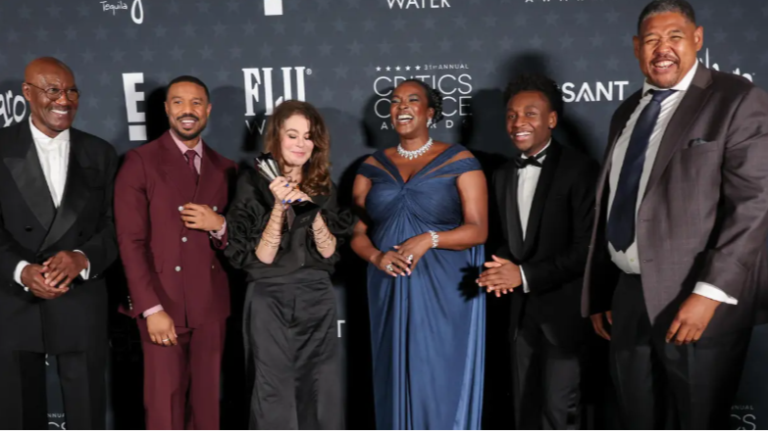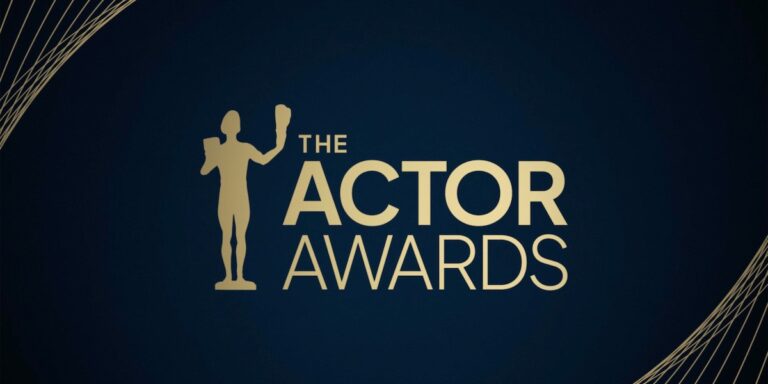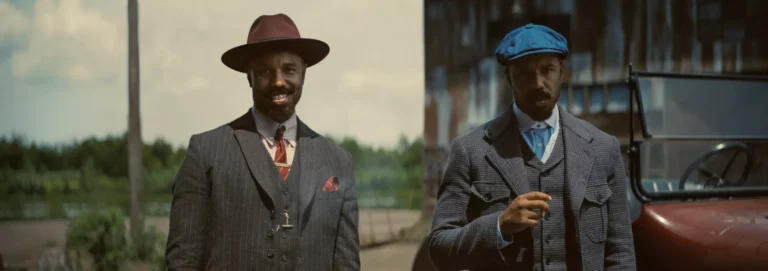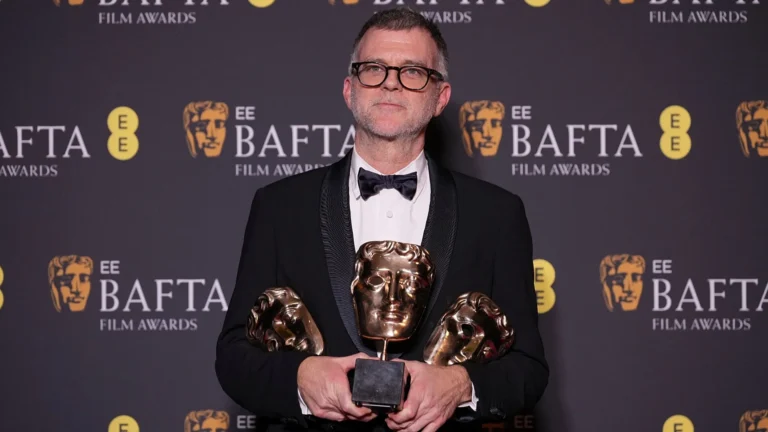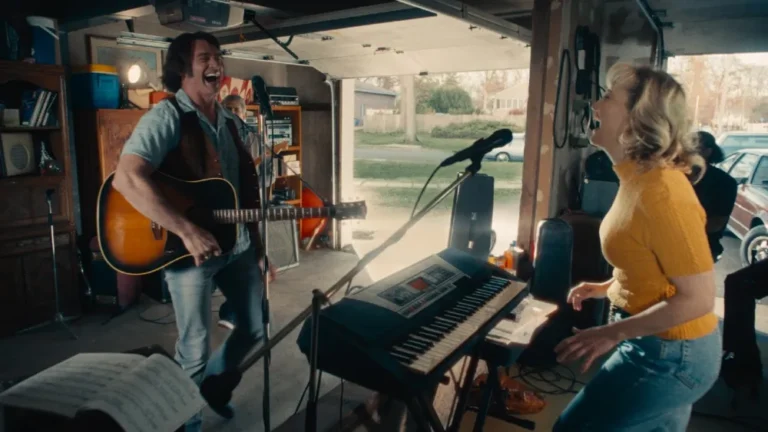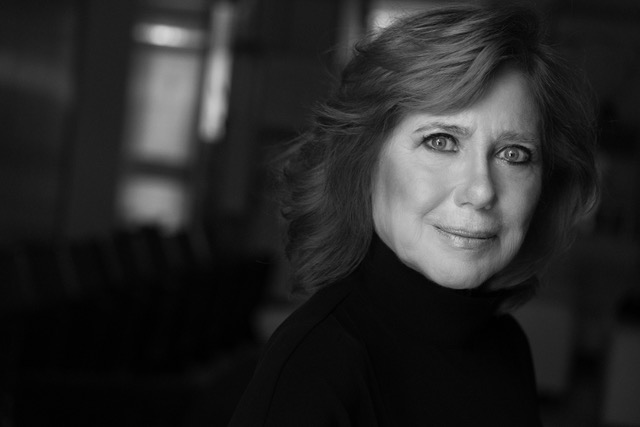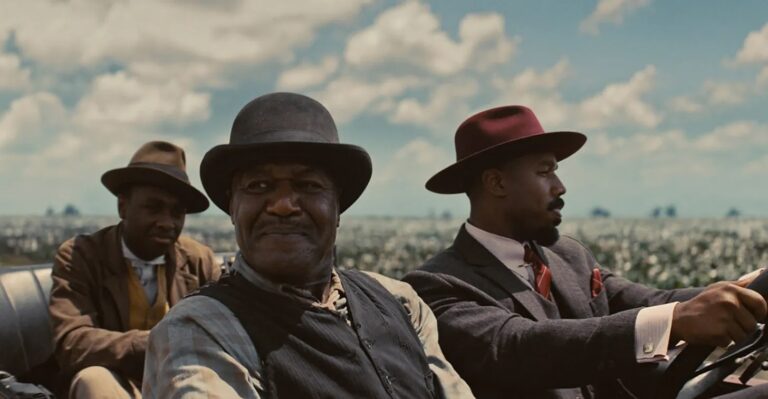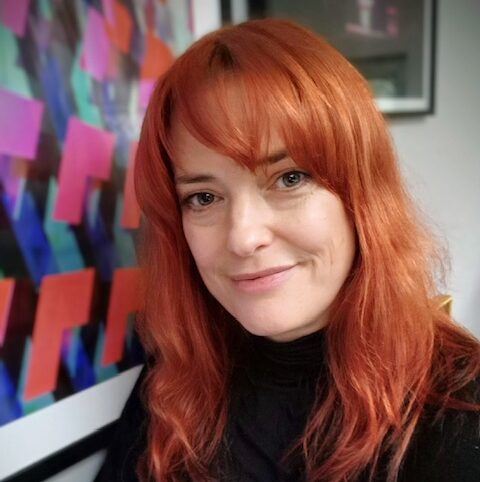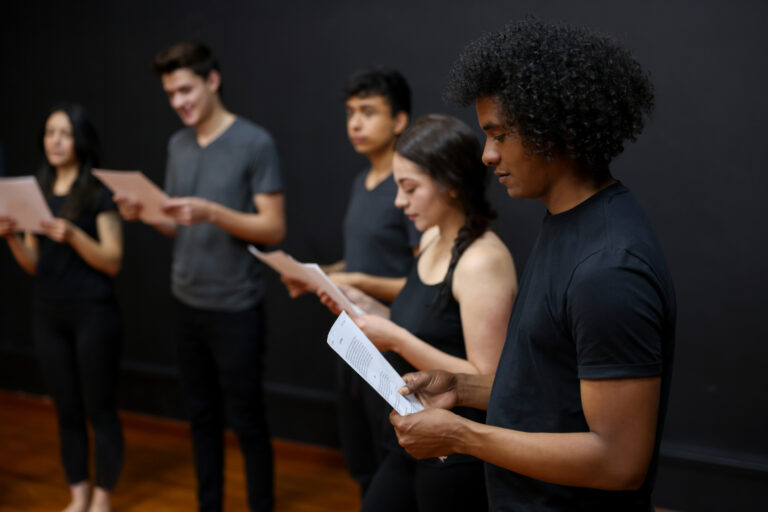Michael Testa and Lisa Ystrom spend a lot of time casting Christmas movies, it’s true, but that also means they’re working a lot. If you’re working a lot, it’s a testament to the kind of work you do, and there’s no arguing that with this pair. Between them, they have well over 100 credits on their résumés, and it’s a fun mix of holiday fare, TV and indies. Their most recent project, A Cherry Pie Christmas, started the Great American Family network’s 2025 holiday programming. They spoke to us from their respective home offices in LA.
How did you both get into casting in the first place?
Lisa Ystrom: I never intended to do it, because it’s also not a thing. There’s not a subject in school for it. I’m born and raised here in LA. I actually was going to school for fashion merchandising and design, and my dad one day said, “I can’t afford to send you to school anymore.” And that completely derailed me. I ended up working at an agency that represented actors for commercials and voice-overs. I didn’t really like the agenting thing, and so then I fell into working for a commercial casting director, and that was not super creative, which led to my doing extras casting for commercials, and then that was even less. She was great, but it was just not very creative. By a fluke, I met for a receptionist job at a place called Liberman/Hirschfeld [Casting], and that got me my very first job. [They were casting] the last half of the last season of Seinfeld. I just fell into it. It was never the intention.
Michael Testa: Mine is a similar tale. I studied film for years in high school and went to Northwestern and went back to New Jersey, where I’m from. I’m a writer, and I wrote something that got bought by an independent film company. That subsequently fell apart, but I decided, if I need to be in the entertainment industry in any capacity, I need to be out in LA. So I just drove until I hit water, basically, and answered an ad in Variety for a casting intern at Stephen J. Cannell Productions. I think he had, like, nine shows on the air at the time. I was a general intern for the entire company, but mainly under the head of casting, Simon Ayer. The only reason why I got the job was, there was an incident where he made the last intern cry and leave, and the associate who was doing the interview asked me, “Do you cry easily?” I said, “No,” and she explained the incident. I just said, off-handily, “Oh, before he makes me cry, I’ll take that chair over there and bash it over his head.” (Laughs) She hired me on the spot. I can’t even remember her name now, but I’m still friends with Simon to this day. I was put on Hunter as assistant for my first job, and you just work your way up.
A lot of casting directors “fall into it.” Probably most, I would say. But you have to love it to stay in it, so what was it about casting that spoke to you both?
LY: I loved the talent aspect of it and hated the agenting. Selling is not my thing. Buying is my thing, I guess. I really just love the talent aspect of it. I love learning new talent. I admire talent. That’s the biggest part of it for me, and also it’s just really fun.
MT: Yeah, I mean, at the end of the day, it’s just really fun, and I’m a firm believer in, don’t do anything with your life that’s not fun or you don’t enjoy because you’re gonna wind up being miserable. It’s also one of the few jobs in the entertainment industry where you really work with everybody. The director, the producers, the agents, the managers, the wardrobe people, the ADs, agents. It just goes on and on and on.
How did you start working together?
LY: I had a previous partner, and we split ways. He didn’t want to have another partner, and I knew if I’m going to do this, I want to have one. So I just put the word out, and somebody connected Michael and me.
MT: It’s almost the same thing. I split from a previous partner, wrote a pilot on my own, which was a bit of a disaster in terms of just clashing of personalities and whatnot, and then I connected with Lisa. Our tastes are very similar, but we have different areas that we focus on and it just broadens our respective ideas about who’s out there and who’s right for various roles. I think our personalities and our energy is really matched together, yin and yang.
I’m always fascinated by how partners work together. How do you separate out the division of labor?
MT: I never really even sat down and thought about it. We just fell naturally into stuff that we like to do. Lisa, slap my hand if I’m wrong, but I think I’m much more of an upfront person. I love just doing deals and working with people. It’s the necessary and really important everyday work of a casting director that I hate to do. It drives me crazy.
LY: Yeah, I’m more detail-oriented, and I pick that part up. I hate negotiating, and Michael’s really good at that.
MT: Then we collaborate on ideas and where we want to go and who we want to go to. We’ll look at tapes separately, and then come together and compare notes and whatnot. Really, it just sort of divided itself. Lisa’s more of the workhorse who does all the really foundational work that needs to be done. She’s the cake. I’m the icing on the cake. (Laughs)
LY: My previous partner, not a slight against him, but I think that we never figured that out, so it was always a little bit of a clash. Creatively, I think we work really, really well together. It’s nice to collaborate with somebody.
MT: Same here. And there’s nothing worse for me than checking avails. It just drives me crazy.
You both work a lot in Christmas movies. There’s a stigma in the industry about them, and yet, there are millions of people who love them. Also, work is work, right? Especially these days?
MT: Well, listen, number one, the stigma about doing those movies, to me, is always just so silly. That’s actually the majority of the work that’s being done, so it’s crazy not to do them. We do joke that if we get another scene with hot chocolate, we’re gonna dive into the lava pit or something. (Laughs) Before I met Lisa, I worked with a bunch of producers out of Boston who I cast a movie for called The March Sisters at Christmas. That became a Christmas staple, and they started doing a lot of them. Then, it just goes. You spread the word, and people see you did that one, and they want you to do this one. Now, we usually just get offered these things. They just came up.
LY: We don’t seek it out.
MT: And we’re not going to turn down work in this climate. Honestly, I can give two craps about what people think about what I do, how I cast. I know there are people who love the way we cast, and then there are probably people who don’t like the way we cast, and you’re not going to change that. I’ve never really thought about the stigma of it all, and I never had to worry about that, because when I started in casting, the first year I started casting, I was blessed with the ability to work both heavily in film and television back in the day when there was this stigma of not doing either. So it was never a thing for me.
What about how the business has changed over the last few years? Has it made your work easier or harder?
LY: It’s both.
MT: You don’t have to leave your couch. I mean, that’s easy right there. (Laughs) However, you see more people, you see more self tapes, and we both come from a very guilt-oriented background that we really do watch all the tapes. Because we feel actors put their time, their effort, and their sweat and their tears into doing this. The very least we owe an actor is false interest, and we give more than that, obviously.
LY: We’re both really hands-on. When we did have an assistant or an associate, we were never the team that would throw the work to them.
MT: Our theory really is, we don’t exist without actors. They’re our lifeblood. I think it’s also important to keep everything new. So every time we release a breakdown, Lisa and I are very conscious about, let’s see new people. No matter the right or wrong, let’s just see new people. Because you keep your base of actors at a certain level, and if you don’t, things change so rapidly all of a sudden, you’re left with the same old people that you hired 15 or 20 years ago,
It sounds like you both really miss being in the room.
LY: There’s pros and cons. As Michael said, it’s really nice to not have to schlep to an office, but at the same time, you miss that connection, because usually we’re in a production office, and so you have intel of things that are going on, and then you get to meet the actors. At the same time, that can be really exhausting, and you can only see X amount of people in a day, because literally, you’re getting up out of your chair and going to get somebody to have a conversation. There’s only so many hours when you sit at the computer and you click, click, click, click, click.
MT: Also, you can see it’s harder for actors to stand out on self tapes, because you don’t have that energy. Lisa and I both take the director part of our titles very seriously, and you don’t get a chance to direct or redirect or give insight into the project to actors on a self tape, yeah? So a lot of people are not as ready as we would like them to be for our director and producers, because they just don’t have the information before they send the tape out.
This is actually a perfect segue into my last question, which is, what piece of advice or wisdom would you give to an actor coming in to see you?
LY: Know your stuff. I know that seems really basic, but if you’re reading your script and you don’t have a certain mastery over your material, you’re not connected to it, and I know that seems insanely basic, but actors do it all the time. I know we can’t tell actors to memorize and it’s not even that, but there’s just … you need a certain connection to the material. I would so much rather have somebody do it incorrectly, but be connected to it, and then we can say, “You know what? This is actually what they’re looking for.” This is really important: We want the actor to do a good job. We are on the actor’s side, and people get so scared, especially back in the day when you were meeting people, they think casting directors have it [in] for them or something.
It astonishes me how much I still hear that from actors.
MT: When we start a project, we want to cast tomorrow. My advice is geared toward the self tape, because that’s what’s happening now. I teach self tape classes online, and I do this with my students, too. The first 30 seconds are the most important, because you’ve got to connect. You’ve got to reach through and grab. And watch your energy. Energy, to me, is something that’s lacking a lot on self tapes. You got to treat the self type audition like you’re going in the room. Back in the day, you’d walk into the waiting room and all of a sudden there’s four or five people just like you, other actors, and all of a sudden you get that energy of competition. So never, ever think of, “Oh, I gotta go back home and put myself on tape for something.” Always, always go, “Oh, I gotta go home and get a chance to act and do it.” It’s a mindset, and I would encourage actors to change your mindset about the self-tape audition, not as a chore or something you have to do, but something you desperately want to do and just shine.
LY: Yeah, yeah, yeah. I have to assume an actor is an actor because they’re passionate about being an actor. So enjoy it.
